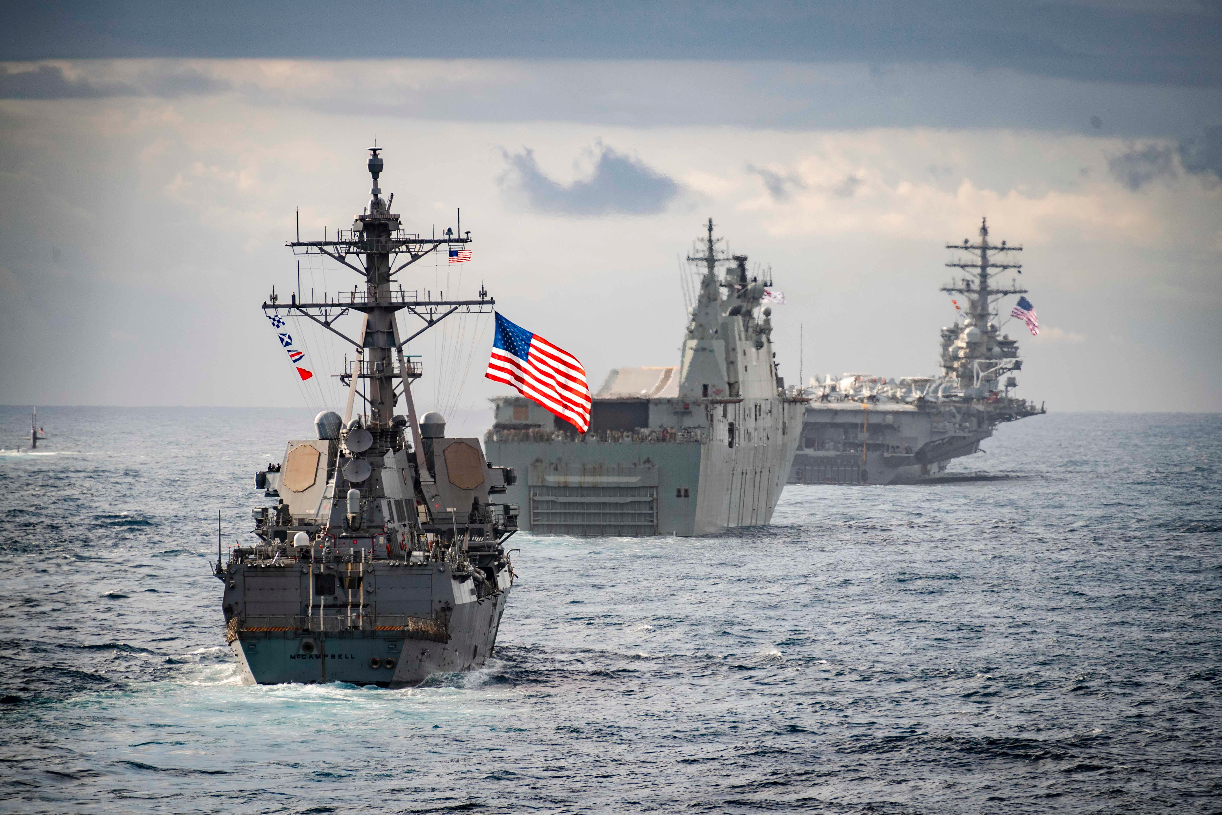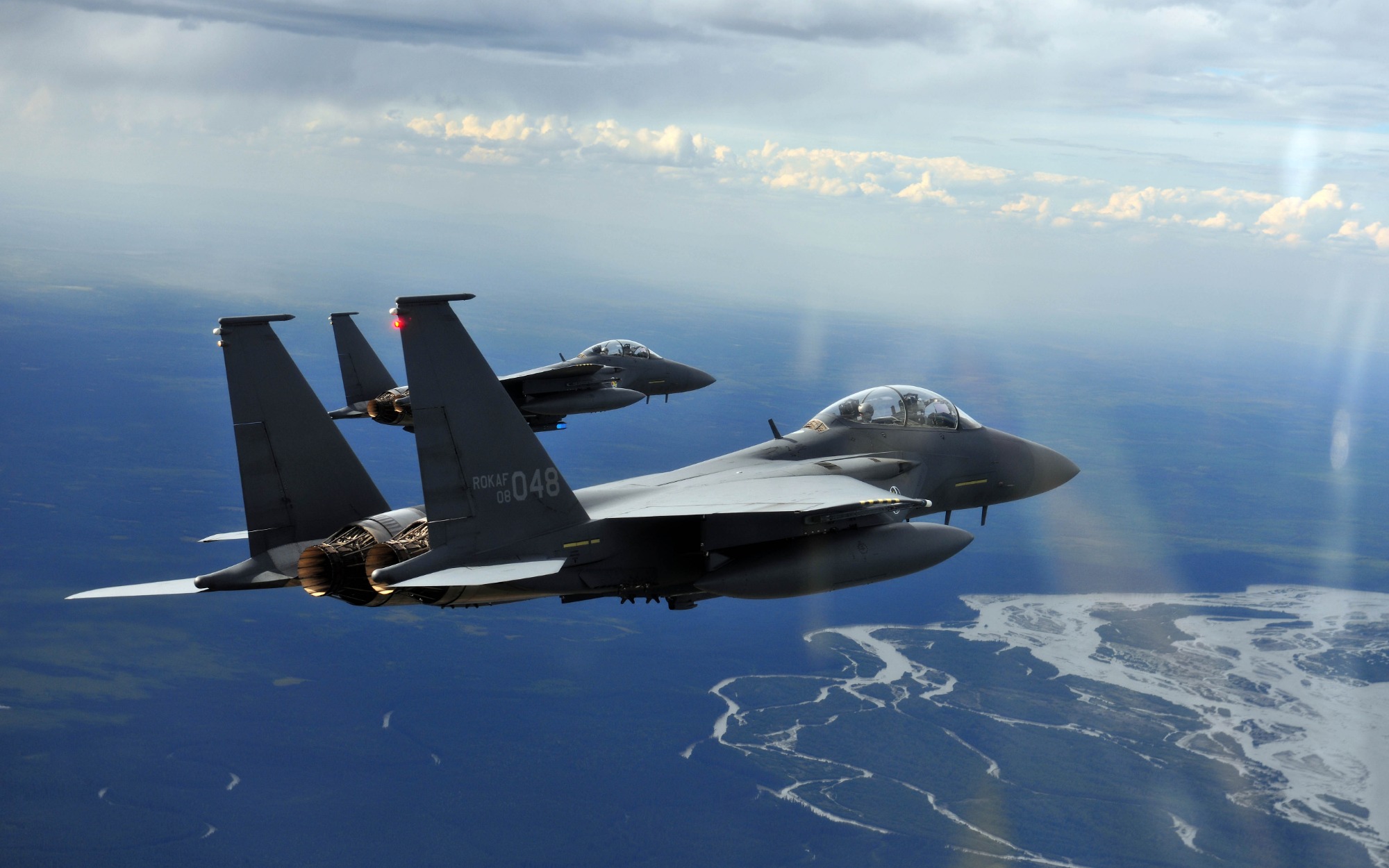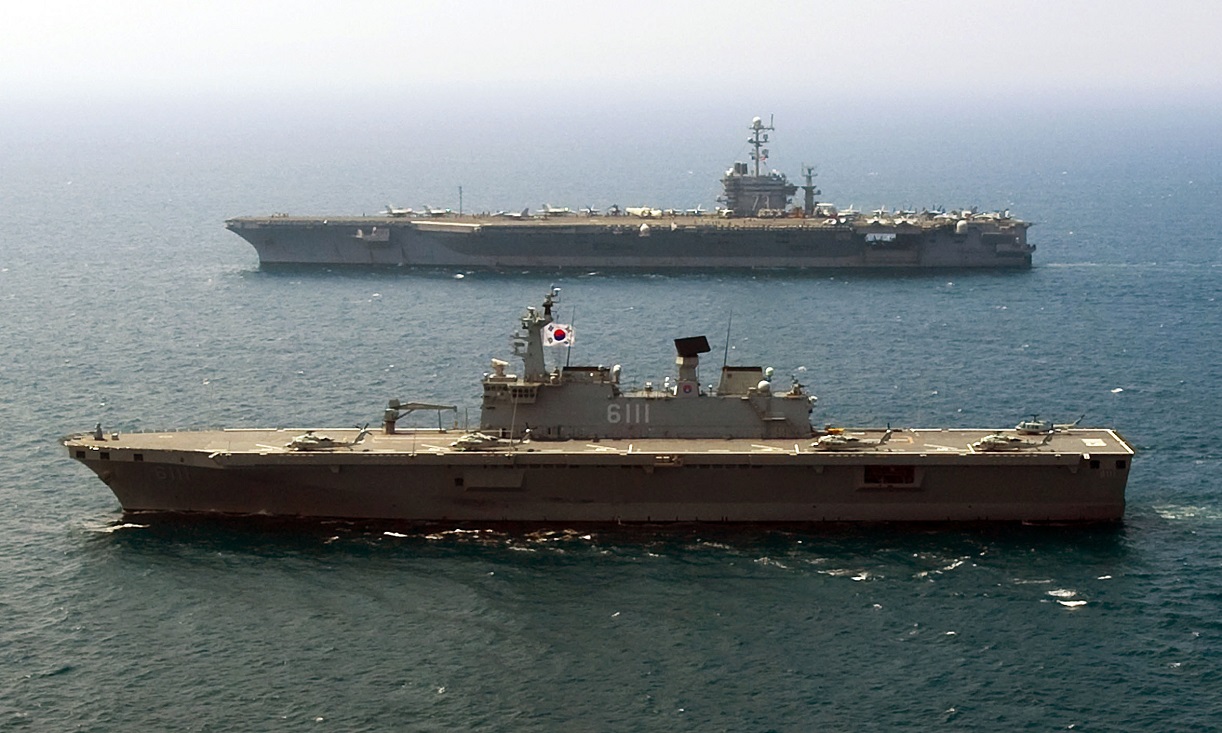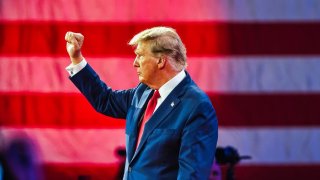Elbridge Colby Is Wrong on the U.S.-ROK Alliance
Debate over the U.S.-South Korea alliance has erupted again, this time sparked by analyst Elbridge Colby’s comments during an interview on May 6. His analysis needs to be understood and challenged.
Debate over the U.S.-South Korea alliance has erupted again, this time sparked by analyst Elbridge Colby’s comments during an interview on May 6. Colby’s views have particular importance because he is reportedly a candidate for U.S. national security advisor if Donald Trump is elected in November. Like his former and perhaps future boss has done, Colby raised fears that the U.S. might withdraw from the alliance, and South Korea might then develop and deploy its own nuclear weapons.

Although Colby’s analysis of the alliance is more sophisticated than Trump’s, some of his views are problematic.
Logical But Superficial Sense
Colby’s argument is logical on the surface. Chinese expansionism is the primary strategic threat the U.S. faces, he says. The most pressing danger is a possible Chinese attempt to forcibly annex Taiwan. Countering China will require all of America’s powers, as the U.S. military is no longer powerful enough to simultaneously win multiple wars. Any diversion of effort to address a strategic problem other than China, therefore, risks setting up the U.S. for a larger defeat.
Accordingly, Colby opposes U.S. funding for Ukraine, arguing that Western European countries should shoulder the responsibility for containing Putin’s Russia, while America desperately needs to channel its resources toward strengthening U.S. military power on the western Pacific Rim.
Yes, ideally, the European countries that are most directly threatened by Putin, and which collectively dwarf Russia’s economic capacity, should be providing the lion’s share of security assistance to Ukraine. But significant nuance is lost in Colby’s framing of the issue as a competition for U.S. resources between Ukraine and Taiwan. Helping Ukraine in fact also partly helps the U.S. counter China. Supplying Ukraine is reviving U.S. defense production. This in the longer term will improve America’s ability to compete militarily with China. Grinding down the military power of Russia, which Ukrainians are doing without risk to U.S. service personnel, weakens the overall aggressive potential of the China Bloc. Russian military success in Ukraine would likely embolden aggression from the People’s Republic of China, while Russian failure would do the opposite – even its current underperformance likely gives Beijing pause. This is why Taipei has strongly supported the democratic countries diverting resources to strengthen Ukraine’s defenses.
Finding Problems Where There Are None
More problems emerge with Colby’s specific recommendations for U.S. policy toward the Korean Peninsula. He argues that American forces in Korea are wasted because they are focused on a strategic problem of secondary importance to the U.S., the defense of South Korea against North Korea. He worries about “sending massive amounts of forces to Korea” that are “held hostage to dealing with the North Korean problem,” which is “not the primary issue for the U.S.” Such a situation “would decrement [sic] from our ability to deal with the Chinese.”
The solution, he says, is for Washington to reduce its responsibilities in the U.S.-ROK alliance and ask the South Koreans to do more for themselves. This would free up U.S. forces based in South Korea for a potential war against China.

Korea is not, however, packed with “massive amounts” of U.S. forces that would be needed in a conflict against China. The few tens of F-16s at Osan and Kunsan air bases would be helpful, but most of the other U.S. units in South Korea are Army infantry and artillery forces that would not be relevant in Taiwan Strait or South China Sea scenarios. The latter would primarily involve U.S. aircraft, naval platforms, and anti-ship missile batteries.
In any case, the U.S. military can already redeploy units based in South Korea to other regions as needed, and it has done so in the past. In 2004, for example, a U.S. brigade moved from South Korea to Iraq.
Furthermore, defending Taiwan is not clearly more important to U.S. interests than defending South Korea. A de facto independent Taiwan has economic, strategic, and political value to the U.S. But the loss of South Korea as a partner and supporter of the liberal world order – Seoul being a middle power, a top-15 global economy, a treaty ally, a fellow democracy, and a close neighbor of China – would also be a major blow to America’s global interests.
The China Threat Is Complex
Furthermore, Colby’s assessment that defending South Korea involves only opposing the lesser demon DPRK is an oversimplification. North Korea is an immediate threat, but the danger of Chinese domination looms in the longer term. Korea’s movement from the U.S.-led camp into the China camp would have similar negative consequences for the U.S. strategic position in the Asia-Pacific region as would a PRC annexation of Taiwan.
Colby suggests reforms to the alliance that would certainly weaken it, if not decisively put it on a path to dissolution. He suggests South Korea should have “overwhelming responsibility for its own self-defense,” and that “the Americans would come in” only “if the Chinese get directly involved.” He also says basing U.S. troops in South Korea makes them vulnerable to a Chinese pre-emptive strike.
It sounds like Colby is comfortable with U.S. troops withdrawing from the Peninsula. But it would seem unwise to dismantle the U.S.-ROK alliance at the very time cooperation is growing among the authoritarian quasi-alliance that seeks to revise international norms in ways Seoul and Washington unitedly oppose.
Nuclear Proliferation in Korea
Colby suggests the ROK should consider getting its own nuclear weapons, a step that might by itself end the alliance, because the U.S. currently does “not provide South Korea with a viable defense umbrella.”
He doesn’t acknowledge the well-known downsides of Seoul going this route. Koreans would object to their government using any place in the country to conduct the test nuclear explosions that would be a necessary part of bomb development. Leaving the Treaty on the Non-Proliferation of Nuclear Weapons would end South Korea’s access to the foreign-supplied nuclear fuel that runs the nuclear power plants that generate one-third of the ROK’s electricity.

Seoul would be sacrificing the protection of the much larger U.S. nuclear arsenal for a small arsenal that South Koreans would be required to pay for. Tensions with the DPRK would increase, with the perverse effect of making nuclear war on the Peninsula more rather than less likely. And the ROK going nuclear would almost certainly cause Japan to do the same, which the Koreans very much don’t want.
Finally, there is no good reason to believe the U.S. nuclear umbrella is no longer “viable.” After the terrible destruction U.S. conventional bombing inflicted on the DPRK during the Korean War, it is not difficult for North Koreans to believe the United States would nuke them. Pyongyang realizes that a nuclear attack against a U.S., South Korean, or Japanese city would result in massive U.S. retaliation that would destroy the North Korean state and its leadership. The DPRK’s nuclear buildup is an attempt to deny the U.S. a first-strike capability and to compensate for North Korea’s vulnerability to conventional military conquest by superior South Korean forces. Pyongyang consistently conditions its nuclear threats on an enemy attacking the DPRK first.
Where Colby is most correct is in drawing attention to the inadequacy of the U.S. defense industrial base to support America’s global superpower commitments under the pressure of a growing challenge from the China-Russia-North Korea bloc. It is from this basic problem that the question of sacrificing one friend for another arises in the first place.
About the Author: Denny Roy
Denny Roy is a Senior Fellow at the East-West Center in Honolulu, specializing in Asia-Pacific strategic and security issues. He holds a Ph.D. in political science from the University of Chicago. He is the author of Return of the Dragon: Rising China and Regional Security (Columbia University Press, 2013), The Pacific War and its Political Legacies (Westport, CT: Praeger, 2009), Taiwan: A Political History (Cornell University Press, 2003), and China’s Foreign Relations(Macmillan and Rowman & Littlefield, 1998), co-author of The Politics of Human Rights in Asia(Pluto Press, 2000), and editor of The New Security Agenda in the Asia-Pacific Region(Macmillan, 1997). He has also written many articles for scholarly journals such as International Security, Survival, Asian Survey, Security Dialogue, Contemporary Southeast Asia, Armed Forces & Society, and Issues & Studies.
Image Credit: The main image is from Shutterstock. All others are Creative Commons.


